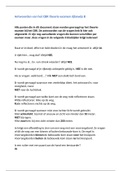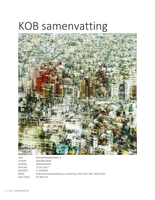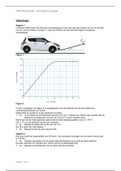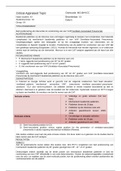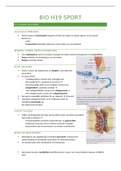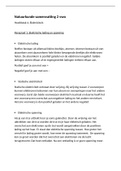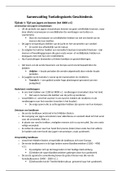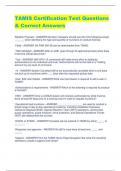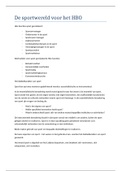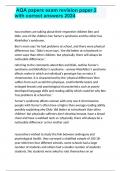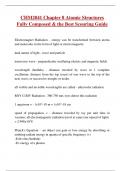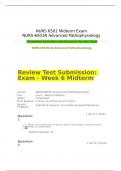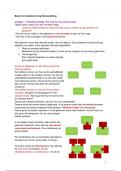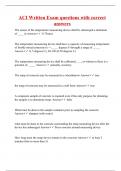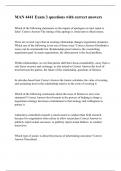Stearns: Chapter 8: The Great Retreat, 1914-1945, and a New Transition
- In history, technological momentum has never been reversed; is the force of
globalization endless?
- But there were times when a variety of countries tried to unseat the
process. A number of features could create vulnerabilities in the
process of globalization. For example the problem of nationalism.
The end of the 19th century was Western-dominated → many
societies were unable to resist the new contacts.
- From World War 1, the effects of globalization became less compelling.
The Great War
- The Great War was the most devastating global war to that point. It divided
the world into warring camps. Soldiers from India and Africa used by Britain
and France gained exposure to novel experiences and ideas, learning more
about European nationalism. The war encouraged disruption and new levels
of divisive national commitments.
- Divisions continued after the war; a variety of societies decided that
globalization had brought dangerous consequences to regional
interests. → US pulled back into isolationism, reducing its
commitments with other regions. New laws limited immigration,
reversing the older trends. Larger economic and cultural
involvements continued full tilt, but the national mood was not pro-
global.
- The new Soviet Union also rethought globalization; cultural influences from
outside were limited.
- Late 1920s and 1930s, new leadership in Japan and Germany also looked
toward the formation of separate economic systems to reduce dependence on
the Western-dominated world economy. Japan carved out a new empire in
East Asia and the Pacific, calling it the Co-Prosperity Sphere: goal to have
sources of raw materials, cheap labour and markets independent from the
larger global system. Japanese leaders were convinced that the West was
incapable of treating the nation fairly.
- Germany hoped to use conquests in Eastern Europe similarly to reduce
interactions with other societies in favour of a Nazi-dominated empire.
- Other countries did not make such radical moves, but issues did revolve
around nationalist struggles for independence.
Ambiguity and Persistence
- Efforts to modify, replace or evade globalization took place. But international
sports and movie interests persisted, just as global trade and big international
companies continued to stay active. Also international politics saw some vital
innovations. The League of Nations expanded the idea of coordination, and
opened to non-Western participation. Also coordination on health issues
- In history, technological momentum has never been reversed; is the force of
globalization endless?
- But there were times when a variety of countries tried to unseat the
process. A number of features could create vulnerabilities in the
process of globalization. For example the problem of nationalism.
The end of the 19th century was Western-dominated → many
societies were unable to resist the new contacts.
- From World War 1, the effects of globalization became less compelling.
The Great War
- The Great War was the most devastating global war to that point. It divided
the world into warring camps. Soldiers from India and Africa used by Britain
and France gained exposure to novel experiences and ideas, learning more
about European nationalism. The war encouraged disruption and new levels
of divisive national commitments.
- Divisions continued after the war; a variety of societies decided that
globalization had brought dangerous consequences to regional
interests. → US pulled back into isolationism, reducing its
commitments with other regions. New laws limited immigration,
reversing the older trends. Larger economic and cultural
involvements continued full tilt, but the national mood was not pro-
global.
- The new Soviet Union also rethought globalization; cultural influences from
outside were limited.
- Late 1920s and 1930s, new leadership in Japan and Germany also looked
toward the formation of separate economic systems to reduce dependence on
the Western-dominated world economy. Japan carved out a new empire in
East Asia and the Pacific, calling it the Co-Prosperity Sphere: goal to have
sources of raw materials, cheap labour and markets independent from the
larger global system. Japanese leaders were convinced that the West was
incapable of treating the nation fairly.
- Germany hoped to use conquests in Eastern Europe similarly to reduce
interactions with other societies in favour of a Nazi-dominated empire.
- Other countries did not make such radical moves, but issues did revolve
around nationalist struggles for independence.
Ambiguity and Persistence
- Efforts to modify, replace or evade globalization took place. But international
sports and movie interests persisted, just as global trade and big international
companies continued to stay active. Also international politics saw some vital
innovations. The League of Nations expanded the idea of coordination, and
opened to non-Western participation. Also coordination on health issues




